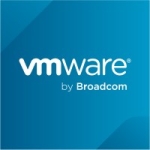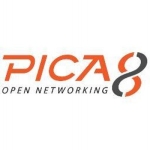What is our primary use case?
We are using it for application centric infrastructure (ACI). It is the evolution of the current data center setup from the legacy design to something programmable with some automation features which are missing today. The key challenge is to set up a new data center, then move all the legacy stuff into the new design.
We need to understand how to do it, as are already under way. We already have products, but we need to go farther in the design and development of the platform.
How has it helped my organization?
Financially, it should be an improvement because we expect everything will converge in the tool. Therefore, we can change the way that we invest money in resources. Today, we have to keep a very wide range of skill resources in the company. Going forward, we will be able to focus in more specific skills that will allow us to keep the new tool up and running. It's a big change of approach, but in the long run, it will provide us a lot of benefits. The benefit is the finance of our IT will change.
What is most valuable?
Once we have it running, it should be easier for us to program our IT rather than going case-by-case, by switches and different elements, or program it by hand.
What needs improvement?
Interoperability with third-party products always seems so straightforward, but every time you need to invest a lot to add an external element to the ACI Fabric technology. A good improvement would be to have an easier integration with external building blocks in the customer's environment.
Biannually, there is a new design delivered by Cisco. Thus, you are always running behind the new design, and it never stops. With Cisco ACI, this has been a nightmare. I recommend that they provide more customer focused blueprints to fix this. They should try to learn and understand what are the real needs of each customer.
Now, we are running behind releases. However, with each new release of a new design, you have to test it and validate it. So, we aren't going operational, which is not good. This support was not offered to us with the product.
I would not want to see any additional features at this point. We have had enough additional features. We still have a lot to learn and don't want anything extra.
Buyer's Guide
Cisco ACI
December 2025
Learn what your peers think about Cisco ACI. Get advice and tips from experienced pros sharing their opinions. Updated: December 2025.
879,422 professionals have used our research since 2012.
For how long have I used the solution?
One to three years.
What do I think about the stability of the solution?
The hardware is not stable. We have switches failing.
What do I think about the scalability of the solution?
We are not that big to reach the limit (or edges) of this technology. Its scalability is fine. It is very easy to scale.
Today, doing changes to the infrastructure is a nightmare. Every single device has different programs and programmatics. However, with this tool, you simply plug and play. When you want to scale, you add one piece, and it's done. It works.
How are customer service and support?
We are buying support services from a Cisco partner, and they have not always worked perfectly. Sometimes, we have to open many types of tickets. We have to make them very clear what we need and just exclusively ask them to forward a request to Cisco. Once we get to Cisco, the support works.
Since the product is new, it is difficult to get the partners onboard. Other companies are not able to provide effective support for this technology yet.
Which solution did I use previously and why did I switch?
We switched to ACI because there came a time to make the decision to either stay with another 10 years with the technology that we had in place or go through this challenge and bet on the future with better, new technologies (and also new skill sets and new setups for our teams). We also try to resell internally to our internal customers and other departments. We help them find new ways to facilitate their core business. We do IT for them, so they need the best possible solutions from us to make their lives easier.
Today, it is sort of a nightmare for them too. Every time we have to do maintenance, for instance, on the infrastructure, we have to break their business continuity, which is not always good.
How was the initial setup?
The initial setup was easy. At the time that we did our setup, the design was easy. The original design was easy to set up. Then, Cisco changed it, and it was more complex. They should not have changed it.
What about the implementation team?
Cisco's partner did the implementation. The experience was great. They came and helped us to do a zero day setup. In a few weeks, we were up and running with the pro console.
What was our ROI?
The business case is not a complete success today, because we still have the two environments running. We want to switch down the first environment while we have everything up and running on the new one, but it's taking ages. This is a big challenge.
What's my experience with pricing, setup cost, and licensing?
We bought a package for hardware, software, and support. At that time, Cisco was simply selling that package to distributors, then we opted for it directly.
Which other solutions did I evaluate?
VMware is one of ACI's competitors. We considered VMware because we also have it in our infrastructure.
We chose Cisco ACI, because VMware is just focusing virtual infrastructure and microsegmentation. The idea was to use Cisco for the physical infrastructure and integrate with VMware for the virtual infrastructure.
What other advice do I have?
I would recommend the solution to anyone with a similar use case, though try for a greenfield solution or project instead of migrating your previous infrastructure.
In principle, what we are looking for is to have one gigantic tool which can be programmable, making our lives easier in terms of troubleshooting and management.
Disclosure: PeerSpot contacted the reviewer to collect the review and to validate authenticity. The reviewer was referred by the vendor, but the review is not subject to editing or approval by the vendor.

















